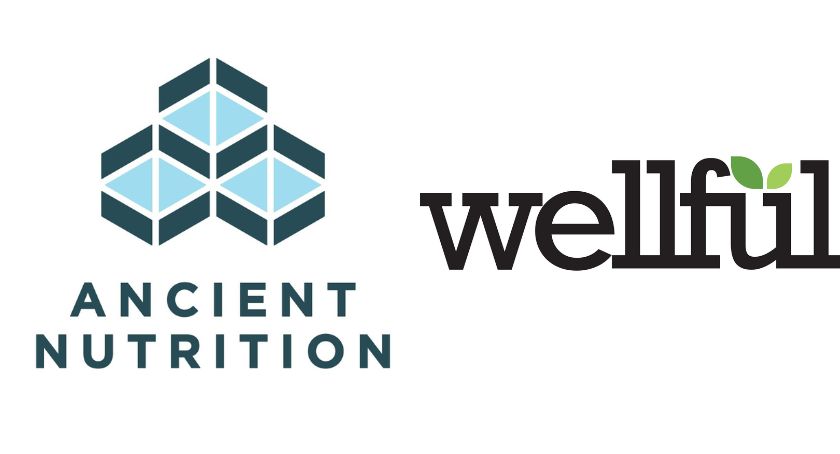Features
Tote That Barge, Lift That Bale
The workhorses of the industry, contract manufacturers, keep expanding capabilities to drive progress in nutraceuticals.
By: Ellen Schutt
Founding Editor, Nutraceuticals World

While in every industry, everyone knows the flashy marketers-the Estee Lauders and Lancomes of the cosmetics industry, the Mercks and Pfizers of pharmaceuticals and any number of top selling dietary supplement companies-there are actually many companies working behind the scenes to actually produce the products that have made these companies household names. This segment of the nutraceuticals industry-with lots of guts and little glory-are the contract manufacturers, those industry workhorses that fill, mill, tablet, granulate, blend, package and ship any number of the products consumers purchase each day from store shelves.
And that’s not all these manufacturers do. Many have added value to their capabilities by offering product formulation, research and development, marketing and labeling advice and inhouse testing operations to offer a full range of services to their extremely varied customer base. Partnering is a common term throughout the contract manufacturing industry and many of these companies have a long history with their customers, taking a product from raw material procurement through to the finished product on store shelves.
The Value Added Equation
Perhaps the most important question in the contract manufacturing field is whether to try to be all things to all people and for many contract manufacturers, the answer is yes. “One of the key attributes of a successful contract manufacturer is being a complete company,” said Rolf Rogers, vice president-sales and marketing, Primera Foods, Cameron, WI. “We can offer a better opportunity in the form of partnerships with our customers; we want to get to 1 +1 = 3.”
Jay Kaufman, president, Paragon Laboratories, Torrance, CA, agreed. “Our relationships with customers are partnerships from concept all the way through product completion and even afterwards, as they may have follow up questions,” he commented.
According to Howard Thau, president, Sonic Packaging, Westwood, NJ, “Customers are looking for someone to take responsibility for R&D, manufacturing and packaging, a true turnkey operation.”
Jon Weisgal, vice president-nutritional marketing, Garden State Nutritionals, West Caldwell, NJ, added, “The number one factor in contract manufacturing is having a manufacturer that’s a true partner, that you can trust as a part of your company. Manufacturing for us is almost secondary.”
It sounds good on paper to be all things to all people; the question then is exactly what that means in concrete terms. Balram Advani, president of ADH, Congers, NY, offered his perspective. “All successful contract manufacturers need to have five essential ingredients,” he said, “a contract manufacturing program, a private label program, a product development program, a product design program and a regulatory compliance program.” He added, “Fast becoming a sixth essential is a graphic design program to help customers with label design.”
According to Suhail Ishaq, vice president, GMP Laboratories, Anaheim, CA, “A successful contract manufacturer must meet and fulfill customer needs and most importantly, must be able to do all tasks inhouse. We have R&D formulation inhouse; we have MD’s, chemists and pharmacists. Customers will come to us and ask, ‘What can I do to enhance this product I’ve come up with’ and we need to be able to answer that question.”
Added Mr. Kaufman, “A successful contract manufacturer is one that has the ability to respond quickly to customers, whether it be providing technical support, lab analysis or ingredient information. Paragon has spent an inordinate amount of money to be able to quickly produce product for our customers and minimize their inventory burden.”
“We rank value added expertise at the top of the pyramid of capabilities we offer,” said Mr. Weisgal. “You can’t just have a good product, you need to be able to ‘sell’ the story, so we try to specialize in innovative ideas and concepts. You have to understand marketing to be a good contract manufacturer,” he said. “We are constantly asked ‘what’s hot’ and we specialize in understanding the market, in finding a way to give our customers added value. The goal is to create and keep good partners.”
Mr. Thau summed it up. “Customers come to us with artwork and a wish list. ‘This is what we’d like in a perfect world,’ they say. We then try to put together a product that performs, is stable and tastes great.”
Cost and timing are also important factors in the success equation. In terms of the latter, contract manufacturers talk of the frustration of customers not understanding the time necessary for bringing a product to market. According to Mr. Ishaq of GMP, “The biggest challenge is meeting delivery expectations of the client. We have facilities inhouse for everything from tablet compression through packaging, we have a micro lab and an analytical lab; we can move fast if we need to, but sometimes customers expect miracles.”
“Compared to five years ago, customers want the job done in one third to one half the time,” said Mr. Thau. “This is due to the resizing of corporate America. The first to market gets the lion’s share of the business and you need to be there as quickly as possible. The ideal contract manufacturer is an organization that listens to what the customer needs and helps them to prioritize the steps in the program.” He added, “We need to give them a clear vision from the start of what the project entails in terms of steps and time frame.”
Cost also continues to be an issue. Yet the reality is that quality and price are equally important, said Michelle Zollner, nutritional marketing manager, Banner Pharmacaps, High Point, NC. “We find that companies are not willing to sacrifice either trait at the expense of the other.”
The bottom line, said Mr. Rogers, is “not just what you say you can deliver but what you can actually deliver. Everyone talks about high quality and high service at a good price; you have to be able to prove it.”
Where’d That Test Come From?
While companies attempt to keep as much of the manufacturing process inhouse as possible, testing may be the one acceptable exception. Opinions vary. “We have a full analytical lab onsite, which we believe is important,” said Paragon’s Mr. Kaufman. “It allows us to quickly deal with analytical issues.”
Other suppliers pick and choose their inhouse capabilities. “We can’t be everything to everyone, so we take care of the basic testing, such as density testing, moisture content, etc., but we outsource the more complicated assays,” said Mr. Rogers.
Likewise, contract manufacturer Anmar International, Bridgeport, CT, does inhouse physical testing but sends out chemical assays and Sonic also does some inhouse testing and some at independent labs, which Mr. Thau said his customers prefer. “They are looking for those independent third party results so there is no prejudice,” he said.
Garden State Nutritionals’ Mr. Weisgal brought up an interesting point. “The problem is that there is no standardized testing today, so you can test the product and have it test fine, then you can send it to an independent lab with different methods and get a completely different result. At the end of the day, you can pass a test, but the question of quality can remain.”
Likewise opinions are divided on GMP’s, since there are no FDA mandated GMP’s for nutraceuticals in existence at this time. Contract manufacturers struggle with how to handle the situation.
“Companies are asking for some kind of GMP standards; the challenge is figuring out which organization to use for standardization,” said Mr. Kaufman. “We are ready to be audited; we just need to determine which body will do the authorization.”
Manufacturers who also handle pharmaceutical products say having an FDA-certified pharmaceutical grade facility has helped their business. “It’s definitely a selling point for us,” said Sonic’s Mr. Thau. “Customers know they can count on a quality operation.”
“This is extremely important to customers,” said Egmont Honer, COO of The Synergy Company, Moab, UT. “We have OTC registration, which some customers ask for explicitly.”
Ms. Zollner of Banner commented, “Our current operational procedures meet or exceed the proposed nutritional GMPs because Banner Pharmacaps manufactures under pharmaceutical cGMPs. As a result, our customers have come to expect this as part of our operational philosophy.”
Finally, Mr. Ishaq said, “Our facility is rated much higher than any proposed FDA guidelines for nutraceuticals and this is of great value to our customers.”
Analyzing The Business Climate
With a tough economic climate in the nutraceuticals industry recently and the threat of recession looming, contract manufacturers have done surprisingly well, partially due to the nature of the business. “The business climate for contract manufacturers right now is good,” said Mr. Rogers. “It has been tougher for companies to justify spending their own capital for expenditures like equipment recently, leading them to outsource more of their manufacturing. There has also been a lot of new products developed by marketers who need a manufacturing partner.”
Mr. Advani agreed. “Many companies invested substantial amounts of capital to build up their own facilities in the past two years, but now they are finding that outsourcing is the way to go,” he said.
According to John Blanco, president, AnMar, “More and more companies are outsourcing. In the case of vitamin houses, direct compression is their expertise. If they have to stop and granulate-which requires wetting, drying and milling-it makes production less efficient.”
“The industry is consolidating, which is leading to more work for contract manufacturers,” said Frank Molinaro, executive vice president, H. Reisman, Orange, NJ. “We are seeing bigger and bigger companies who cannot respond to the needs of the market. They are looking to us to do product development and R&D as well as the actual manufacturing.”
In addition, he said, “no one wants to manufacture anymore. There are environmental concerns, quality issues, short product cycles that make capital expenditures a risky proposition…these all make the atmosphere more favorable for contract manufacturers.”
Other manufacturers acknowledged that while their business remains strong, the industry in general may be lagging. Synergy Company’s Mr. Honer commented, “The overall climate is slowing down right now, although our business is doing well. Much of this can be attributed to the recent bad press, with maybe a little impact from the economy in general.”
“The market is very competitive,” added Ms. Zollner. “In the past three years, not only have there been a number of new contract manufacturers entering the market, but there have also been a number of customers who have developed or expanded their own internal manufacturing capabilities,” she said.
Differentiation becomes key. “I see a little waning in the industry as a whole, although our business is doing well,” said Mr. Weisgal. “We need to differentiate ourselves, provide more value to our customers.”
Aaron Bembassat, sales and marketing director, Swiss Caps, Miami, FL, concurred. “The climate for a differentiated contract manufacturer is growing. For the marketer it’s a balance between cost and what you can accomplish inhouse versus outsourced. It may not pay for them to do it themselves; they can pay for our services and come out ahead.”
Mr. Thau added, “The companies that are prospering today are the ones that are creative. They are pushing the limits and are not interested in ‘me, too’ type products. The industry is becoming more reliant on contract manufacturers because of consumer demand for creative and better tasting products.”
Contract Manufacturing Challenges
Finally, contract manufacturers discussed the challenges for growing their business in the future. One is keeping on top of the evolving market. “Our biggest challenge is always being proactive. You have to think ahead and look ahead, anticipating the future needs of customers,” said Mr. Kaufman.
Dealing with a plethora of raw materials, products and customers also presents its own set of challenges. Mr. Blanco discussed logistics, “The challenge is efficiently switching from one product to another. There is a massive amount of cleanup involved when switching from one product to another and that involves downtime from day to day. We are constantly looking for large enough runs to avoid the downtime,” he said.
Michael Schaefer, COO of Pacific Nutritionals, Vancouver, WA, said the challenge is to “keep track of all the suppliers and the supply, to make sure the proper materials are being analyzed and that they meet the specs. Contract manufacturers need to maintain a focus on quality, maintain good communications with the customer and deliver in a timely manner.”
“Our biggest challenge is one of flexibility,” said Mr. Rogers. “Offering different technologies through the food and nutraceutical spectrum presents us with many new opportunities; the challenge is to manage the diversity of the business. We are working with different raw materials, technologies and company practices, so you are not just managing your own business, but the business of your customers as well.”
In addition, the evolving regulatory landscape keeps manufacturers on their toes. “A major challenge is keeping up with regulatory updates and label changes,” said Mr. Advani. “There are new laws coming into effect that impact these products and it is up to us to advise customers about them and how best to take advantage of what’s going on in this climate.”
Mr. Molinaro took it one step further. “The biggest challenge today is to have knowledge about regulatory issues, about safety and quality control and about environmental issues. More and more companies are interested in forming partnerships with us; they want to have smaller satellite companies do the “legwork” while they concentrate on marketing their brand.”




















